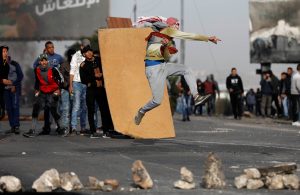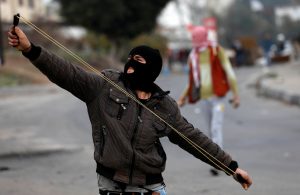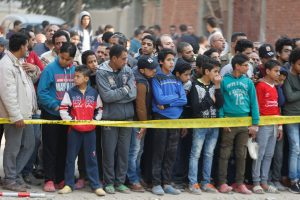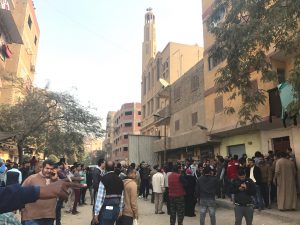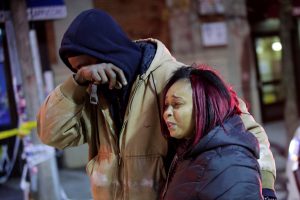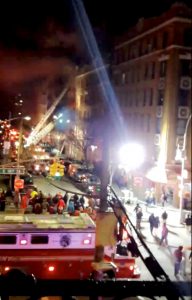
By Philip Wen and David Brunnstrom
BEIJING/WASHINGTON (Reuters) – China on Friday denied reports it has been illicitly selling oil products to North Korea after U.S. President Donald Trump said he was not happy that China had allowed oil to reach the isolated nation.
Trump said on Twitter the previous day that China had been “caught” allowing oil into North Korea and that would prevent “a friendly solution” to the crisis over North Korea’s nuclear and missile programs that it conducts in defiance of heavy U.N. Security Council sanctions.
“I have been soft on China because the only thing more important to me than trade is war,” Trump said in a separate interview with The New York Times.
South Korea’s Chosun Ilbo newspaper this week quoted South Korean government sources as saying that U.S. spy satellites had detected Chinese ships transferring oil to North Korean vessels about 30 times since October.
U.S. officials have not confirmed details of this report.
Chinese Foreign Ministry spokeswoman Hua Chunying told reporters she had noted recent media reports including suggestions a Chinese vessel was suspected of transporting oil to a North Korean vessel on Oct. 19.
“The Chinese side has conducted immediate investigation. In reality, the ship in question has, since August, not docked at a Chinese port and there is no record of it entering or leaving a Chinese port,” Hua said.
She said she was not aware if the vessel had docked at the port in other countries but the relevant media reports “did not accord with facts”.
“China has always implemented U.N. Security Council resolutions pertaining to North Korea in their entirety and fulfils its international obligations. We never allow Chinese companies and citizens to violate the resolutions,” Hua said.
“If, through investigation, it’s confirmed there are violations of the U.N. Security Council resolutions, China will deal with them seriously in accordance with laws and regulations.”
In the New York Times interview, Trump explicitly tied his administration’s trade policy with China, North Korea’s lone major ally, to its perceived cooperation in resolving the North Korea standoff.
“When I campaigned, I was very tough on China in terms of trade. They made — last year, we had a trade deficit with China of $350 billion, minimum. That doesn’t include the theft of intellectual property, O.K., which is another $300 billion,” Trump said, according to a transcript of the interview.
“If they’re helping me with North Korea, I can look at trade a little bit differently, at least for a period of time. And that’s what I’ve been doing. But when oil is going in, I’m not happy about that.”
An official with the U.S. State Department said the U.S. government was aware of vessels engaged in such activity involving refined petroleum and coal.
“We have evidence that some of the vessels engaged in these activities are owned by companies in several countries, including China,” the official said, speaking on condition of anonymity.
The United States says the full cooperation of China, North Korea’s neighbor and main trading partner, is vital to the success of efforts to rein in North Korea, while warning that all options are on the table, including military ones, in dealing with it.
China has repeatedly said it is fully enforcing all resolutions against North Korea, despite suspicion in Washington, Seoul and Tokyo that loopholes still exist.
‘EVADING SANCTIONS’
South Korea said on Friday it had seized a Hong Kong-flagged ship suspected of transferring oil to North Korea.
A senior South Korean foreign ministry official said the ship, the Lighthouse Winmore, was seized when it arrived at a South Korean port in late November.
“It’s unclear how much oil the ship had transferred to North Korea for how long and on how many occasions, but it clearly showed North Korea is engaged in evading the sanctions,” the official told Reuters.
South Korea’s customs service concluded that the Lighthouse Winmore had loaded about 14,000 tons of Japanese refined petroleum products in South Korea on Oct. 11, reportedly bound for Taiwan, the official said.
But instead, it transferred as much as 600 tons to the North Korea-flagged Sam Jong 2 on Oct. 19 in international waters between China and the Korean peninsula, on the order of its charterer, Billions Bunker Group Corp., based in Taiwan, the ministry official said.
It was not immediately possible to find contact information for the company.
A spokesman for Taiwan’s presidential office, Alex Huang, said the company was not incorporated in Taiwan.
“As a responsible member of international society, Taiwan will continue to fully comply with all U.N. sanctions against North Korea, in order to support peace and stability in the region,” he said in a statement.
The Hong Kong government said it was “liaising with the Korean parties concerned to obtain further information about the incident, and will take appropriate actions as necessary”.
Employees at the office of Lighthouse Ship Management, the ship’s registered manager, in the Chinese port city of Guangzhou, declined to comment and said they had no knowledge of the situation.
China’s foreign ministry spokeswoman said she did not have any information about the matter.
Both ships were among 10 vessels that the United States had proposed that the U.N. Security Council should blacklist for transporting banned items from North Korea, documents seen by Reuters this month showed.
China and Russia subsequently asked for more time to consider the U.S. proposal.
Ship tracking data in Thomson Reuters Eikon shows that the Lighthouse Winmore has mainly been doing supply runs between China and Taiwan since August.
Prior to that, it was active between India and the United Arab Emirates. In October, when it allegedly transferred petroleum products to the North Korean ship, the Lighthouse Winmore had its tracking transponder switched off.
The Trump administration has led a drive to step up global sanctions on North Korea in response to its efforts to develop nuclear-tipped missiles capable of hitting the United States.
The U.N. Security Council last week unanimously imposed new sanctions on North Korea for a recent intercontinental ballistic missile (ICBM) test, seeking to further limit its access to refined petroleum products and crude oil.
The U.S.-drafted U.N. resolution seeks to ban nearly 90 percent of refined petroleum exports to North Korea by capping them at 500,000 barrels a year.
It also caps crude oil supplies to North Korea at 4 million barrels a year and commits the Security Council to further cuts if North Korea conducts another nuclear or intercontinental ballistic missile test.
In September, the Security Council put a cap of 2 million barrels a year on refined petroleum products exports to North Korea.
(Additional reporting by Hyonhee Shin and Josh Smith in Seoul, Venus Wu and Tyrone Siu in Hong Kong and Brenda Goh in Shanghai; Writing by Ben Blanchard; Editing by Robert Birsel and Nick Macfie)





